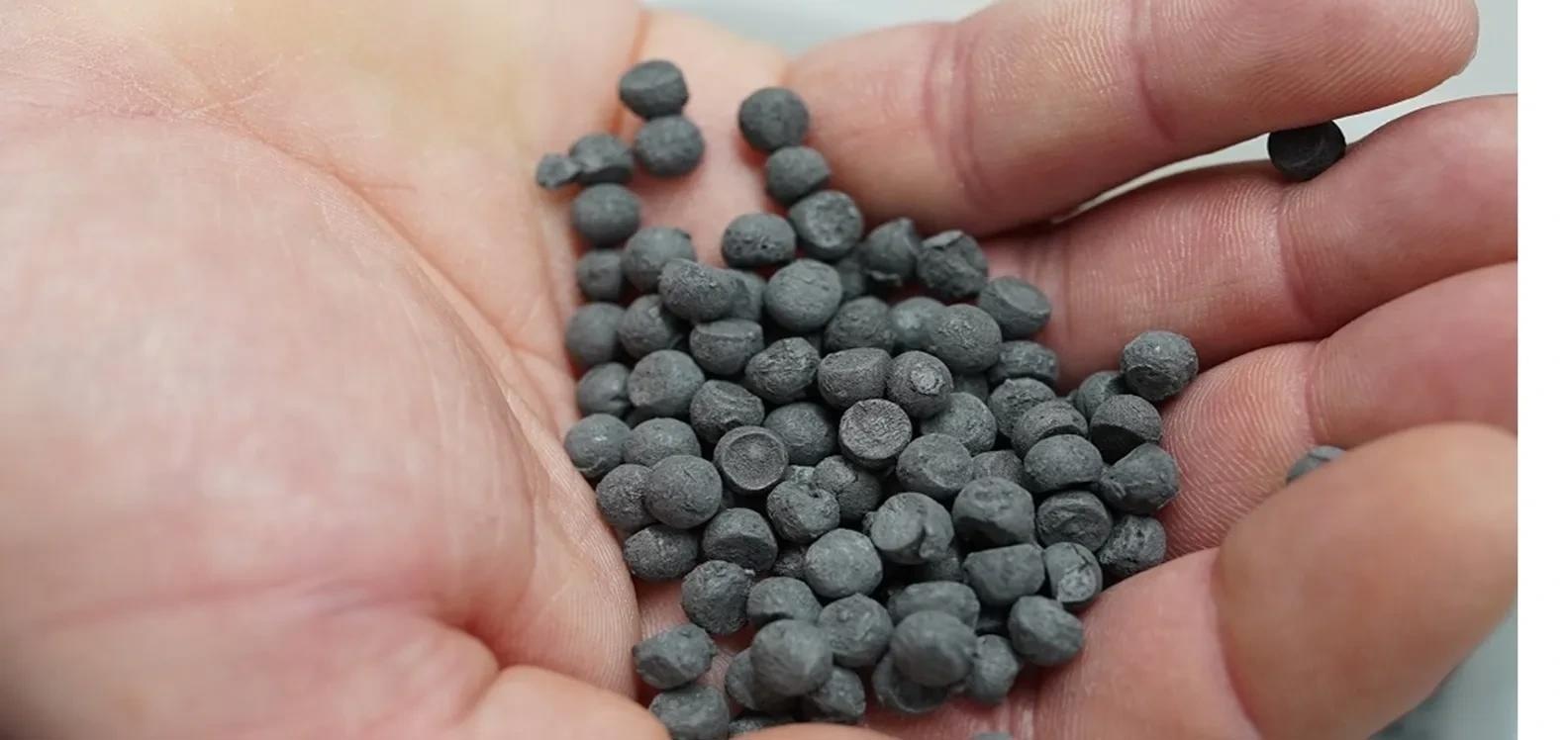Swansea University researchers from the SPECIFIC Innovation and Knowledge Centre and the COATED M2A program have teamed up with the University of Bath to make a revolutionary innovation in thermal storage research—designing a new efficient material that is easy to scale and can be sized and shaped to fit multiple applications.
 Beads that can store heat, which would otherwise be wasted, from various sources, including industrial operations and the summer sun. The new material has been made using alginate, an inexpensive, abundant, and non-toxic seaweed derivative. Image credit: Swansea University.
Beads that can store heat, which would otherwise be wasted, from various sources, including industrial operations and the summer sun. The new material has been made using alginate, an inexpensive, abundant, and non-toxic seaweed derivative. Image credit: Swansea University.
The material was created using alginate, a cheap, abundant, and non-toxic seaweed derivative. The research was published in the Journal of Materials Science.
The process starts with dissolving sodium alginate in water. Following that, expanded graphite is introduced, and a gelation process is selected:
- The first procedure involves pouring the solution into a mold and freezing it. Beads are generated and moved to a saturated calcium chloride solution after being maintained at –20 °C for more than 2 hours.
- The second method involves dropping the mixture into thermochemical calcium salt, which causes gelation on contact.
- The synthesized beads are filtered and dried at 120 °C once sufficient salt diffusion has occurred.
Both systems’ alginate-based beads outperform SPECIFIC’s earlier carrier material, vermiculite, in terms of heat storage capacity.
The new spherical beads have a higher salt capacity and up to four times the energy density of the vermiculite carrier. This is made possible by their efficient packing in a fixed bed with sufficient airflow. As a result, the new material can store the same amount of heat energy in a quarter of the volume.
“The ability to recover and store otherwise-wasted heat from various sources, including industrial operations and the summer sun, presents an exciting opportunity in the quest for sustainable and affordable energy resources. Our new heat storage material marks a significant step forward in realizing this potential,” states Jack Reynolds, who led the research as part of his doctorate at Swansea University.
SPECIFIC remains committed to driving innovation in thermal storage technology and actively collaborating with industry partners and researchers worldwide to accelerate the transition towards a greener and more sustainable future. To explore new applications for this latest technology, we are preparing for a trial at Tata Steel UK’s Trostre steelworks to investigate ways of capturing waste heat from industrial processes for use elsewhere.
Dr. Jonathon Elvins, Study Co-Author and Senior Technology Transfer Fellow, Swansea University
The research at SPECIFIC Innovation and Knowledge Centre and COATED M2A was supported by the European Regional Development Fund through the Welsh Government, the European Social Fund via the Welsh Government, the Engineering and Physical Sciences Research Council (EPSRC), and Tata Steel UK. The research was also funded by the Industrial Decarbonisation Research and Innovation Centre.
Journal Reference:
Reynolds, J., et al. (2023). Development and characterisation of an alginate and expanded graphite based composite for thermochemical heat storage. Journal of Materials Science. doi.org/10.1007/s10853-023-08370-1.
Source: https://www.swansea.ac.uk